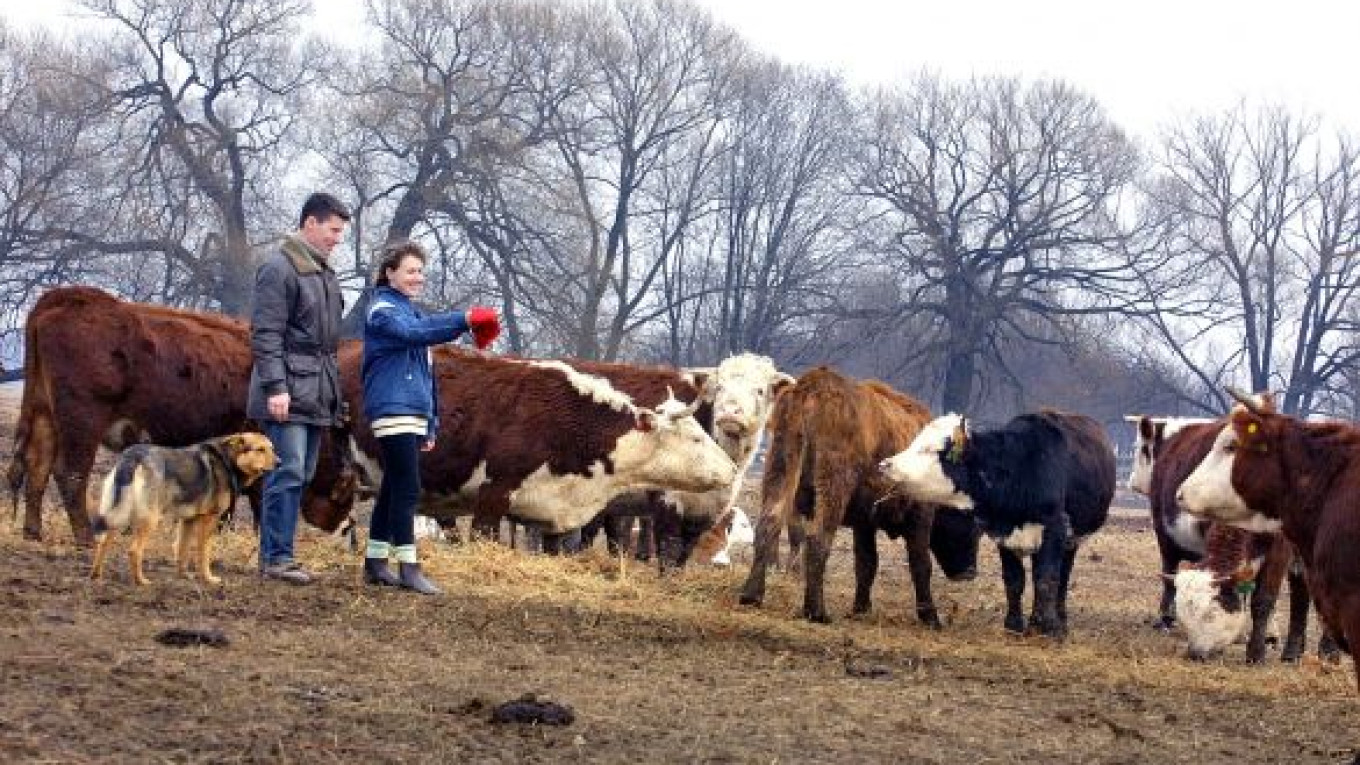The Agriculture Ministry has identified? regions that will have unlimited support from the government despite the country's entry into the WTO.
In a proposal to Prime Minister Dmitry Medvedev, the ministry listed 41 regions — or almost half of their total number — as having "unfavorable conditions for farming."
"This measure gives an opportunity to increase state support without a backward glance at the WTO," said Alexei Smorodov, executive director of the National Union of Grain Growers, an agricultural lobby group.
Under WTO rules, the government may splurge on disadvantaged regions as much as it deems necessary.
The ministry stated that it borrowed heavily from U.S. and European Union practice in defining a disadvantaged area. These areas, according to the proposal released Thursday, have a combination of poor climate, insufficient roads, low cost of farmland, meager rural incomes and other deficiencies.
Farmers in these regions earn less profit than is average for the country.
The ministry's proposal supplements a bill aimed to support farmers in disadvantaged regions, which has yet to clear the State Duma. The bill directs the government to identify the regions and provide subsidies to farmers there.
Deputy Agriculture Minister Alexander Petrikov said that Russia's current list of agriculturally handicapped areas includes 24 entries. He didn't elaborate.
Most of the regions on the proposed list are in Russia's north and east.
They range from the permafrost areas, such as the Yakutia republic, to Siberia's mountainous Altai region. The similarly mountainous but much warmer Dagestan republic in the North Caucasus is also on the list.
The other regions that are bad for farming include the humid, rain-battered Primorye region, central Russian Smolensk region and the country's biggest natural-gas producing region, Khanty-Mansiisk.
The purpose of the proposal is not to? increase? the subsidies to the listed regions immediately, the ministry said in a memo.
Making the spending immune to WTO restrictions is a measure for the future, when Russia will have to curtail its trade distorting subsidies in the sector to comply with the terms of accession to the organization, Smorodov said.
Under the entry conditions, the government may spend up to $9 billion in trade-distorting support this year and next year, which is about double what it spent last year. But Russia will have to reduce this kind of support, lowering direct influence on the price and quantity of products gradually to $4.4 billion in 2018.
Last year, the federal budget earmarked 168 billion rubles for agricultural subsidies and other support measures, with the larger share of the subsidies going toward partially covering interest rate payments.
The ministry's list named the Yamal-Nenets autonomous region, Tyva republic and the Magadan region as the worst three regions for farming, respectively.
The best region is Belgorod, followed by Krasnodar and the Chuvashia republic, Agriculture Minister Nikolai Fyodorov's native area. The Moscow region was ranked as the 8th best place for farming.
Related articles:
A Message from The Moscow Times:
Dear readers,
We are facing unprecedented challenges. Russia's Prosecutor General's Office has designated The Moscow Times as an "undesirable" organization, criminalizing our work and putting our staff at risk of prosecution. This follows our earlier unjust labeling as a "foreign agent."
These actions are direct attempts to silence independent journalism in Russia. The authorities claim our work "discredits the decisions of the Russian leadership." We see things differently: we strive to provide accurate, unbiased reporting on Russia.
We, the journalists of The Moscow Times, refuse to be silenced. But to continue our work, we need your help.
Your support, no matter how small, makes a world of difference. If you can, please support us monthly starting from just $2. It's quick to set up, and every contribution makes a significant impact.
By supporting The Moscow Times, you're defending open, independent journalism in the face of repression. Thank you for standing with us.
Remind me later.


